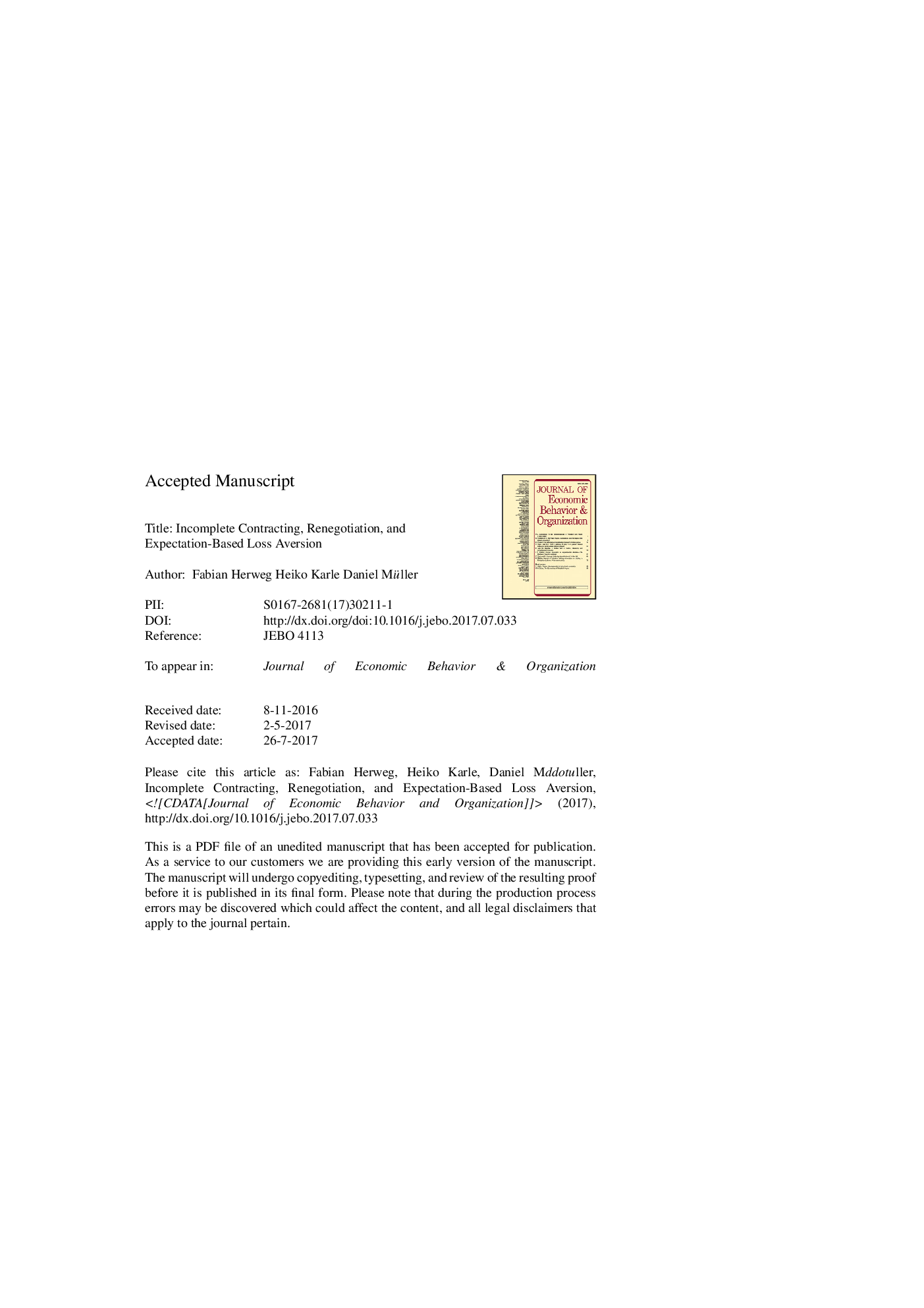| Article ID | Journal | Published Year | Pages | File Type |
|---|---|---|---|---|
| 7242684 | Journal of Economic Behavior & Organization | 2018 | 48 Pages |
Abstract
We consider a simple trading relationship between an expectation-based loss-averse buyer and a profit-maximizing seller. When writing a long-term contract the parties have to rely on renegotiation in order to ensure materially efficient trade ex post. We show that if the buyer expects renegotiation to occur, the seller can opportunistically exploit the buyer's attachment to the expected outcome of renegotiation. In other words, incomplete contracts create a new type of hold-up problem. If credible, the buyer prefers to expect not to renegotiate, which gives rise to ex post inefficiencies. In a next step, we allow the buyer to undertake a non-contractible investment. We find that loss aversion can mitigate the traditional hold-up problem.
Related Topics
Social Sciences and Humanities
Economics, Econometrics and Finance
Economics and Econometrics
Authors
Fabian Herweg, Heiko Karle, Daniel Müller,
